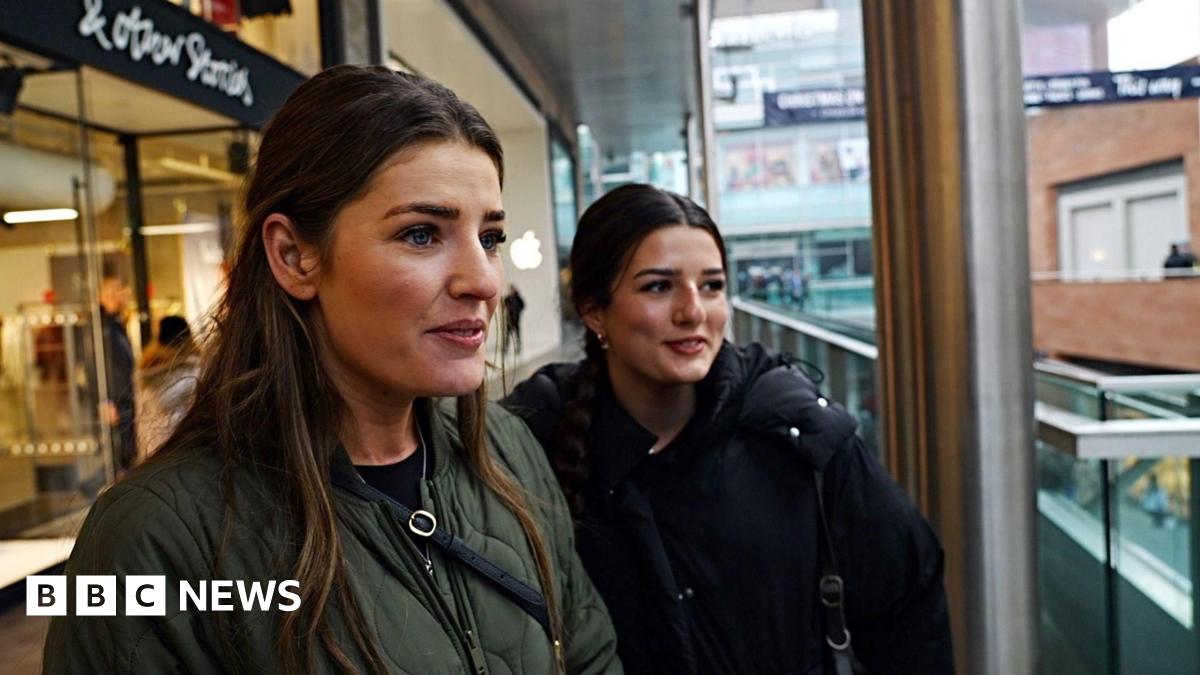Major supermarket with 1,400 branches across the UK to close store in months

- by Admin
- December 16, 2024

A MAJOR UK supermarket has confirmed it is shutting down a popular store in a matter of months.
Devastated shoppers say it will be “sad to see” the branch disappear after a number of other closures in the area in recent months.
The Sainsbury’s at Stamford Hill, London, is set to close for good on February 1, 2025.
The supermarket chain, which has 1,400 branches, is one of the most popular stores in the UK.
Sainsbury’s confirmed it is closing down the store due to the landlord looking to redevelop the site after the lease expires.
A Sainsbury’s spokesperson told The Sun: “Earlier this year, we shared the difficult news with colleagues at our Stamford Hill supermarket that the landlord intends to redevelop the site.
“The store will remain open and our colleagues will continue to serve the local community as usual between now and the 1st of February, when our lease expires.
“We appreciate this will be an unsettling time for everyone this affects and we are doing everything we can to support them, including exploring opportunities for our colleagues to redeploy to alternative roles within Sainsbury’s.”
Dozens of local shoppers were left saddened by the news as they took to social media to speak on the closure.
Many said the decision is a confusing one as a nearby Asda had only closed down recently.
One posted an image of the shopfront alongside the caption: “Will be sad to see them go and I shudder at what will replace them given what’s happening at another local closed supermarket.
“But times and neighbourhoods do change and such is life.”
Another said: “Damm that’s such a handy supermarket.”
A third voiced their concerns over what the closure may mean for people who used the Sainsbury’s as their local shop.
They said: “Wow that’s a needed supermarket… why should people have to travel far away to get shopping!!!
“So very sad for a lot of people who will struggle.”
You can find your nearest Sainsbury’s using its Store Locator tool on its website – just put in your postcode or nearest town.
Many other supermarkets offer a similar feature to help you always know where to shop.
Why are retailers closing shops?
EMPTY shops have become an eyesore on many British high streets and are often symbolic of a town centre’s decline.
The Sun’s business editor Ashley Armstrong explains why so many retailers are shutting their doors.
In many cases, retailers are shutting stores because they are no longer the money-makers they once were because of the rise of online shopping.
Falling store sales and rising staff costs have made it even more expensive for shops to stay open. In some cases, retailers are shutting a store and reopening a new shop at the other end of a high street to reflect how a town has changed.
The problem is that when a big shop closes, footfall falls across the local high street, which puts more shops at risk of closing.
Retail parks are increasingly popular with shoppers, who want to be able to get easy, free parking at a time when local councils have hiked parking charges in towns.
Many retailers including Next and Marks & Spencer have been shutting stores on the high street and taking bigger stores in better-performing retail parks instead.
Boss Stuart Machin recently said that when it relocated a tired store in Chesterfield to a new big store in a retail park half a mile away, its sales in the area rose by 103 per cent.
In some cases, stores have been shut when a retailer goes bust, as in the case of Wilko, Debenhams Topshop, Dorothy Perkins and Paperchase to name a few.
What’s increasingly common is when a chain goes bust a rival retailer or private equity firm snaps up the intellectual property rights so they can own the brand and sell it online.
They may go on to open a handful of stores if there is customer demand, but there are rarely ever as many stores or in the same places.
What is happening to the British high street?
The news comes amid a challenging time for the whole of the UK’s retail sector.
High inflation coupled with a squeeze on consumers’ finances has meant people have less money to spend in the shops.
Also the rising popularity in online shopping has meant people are favouring digital ordering over visiting a physical store.
Unseasonably wet weather has also deterred shoppers from hitting the high street.
This ongoing issue has seen brands such as Paperchase, and The Body Shop all lose dozens of stores this year.
Figures from the Centre for Retail Research revealed 8,543 stores closed and more than 130,000 retail jobs were lost in 2024.
Supermarkets are also rapidly closing across the UK with Lidl confirming this week one of its city centre branches is shutting for good after trading for over two decades.
The discount supermarket said an outlet in Aberdeen will shut up shop around the time of its 25th anniversary.
But the bargain supermarket is also set to open up 10 more UK stores before Christmas as it targets festive shoppers.
The discounter currently has about 960 stores but previously said it wants to operate more than 1,100 across England, Wales and Scotland.
The locations it wants to open branches before the end of the year includes: Berwick Green in Bristol, Bovey Tracy in Devon, Stirchley in Birmingham and Hoxton, Forest Gate and Caterham in London.
Stores opening in December 2024
Toys R Us
The iconic 90s toys retailer is to rapidly launch 23 new shops following the successful opening of dozens in the last year.
The stores will all be open by Christmas, with the first welcoming customers at the end of last month.
See a full list of locations here.
Mountain Warehouse
The outdoor clothes retailer has revealed it will open 50 new stores in the UK.
The brand has already opened 20 new stores in the UK in the past six months – and now plans to expand to new locations, including at retail parks.
The exact list of locations where Mountain Warehouse will be opening is yet to be revealed.
Lidl
Lidl has said it wants to open 10 more UK stores before Christmas as it targets festive shoppers.
The discounter currently has about 960 stores but previously said it wants to operate more than 1,100 across England, Wales and Scotland.
The locations it wants to open branches before the end of the year includes: Berwick Green in Bristol, Bovey Tracy in Devon, Stirchley in Birmingham and Hoxton, Forest Gate and Caterham in London.
The Latest News
-
December 30, 2024Keir Starmer hits back after Elon Musk claims few businesses willing to invest in UK
-
December 30, 20245 Best Online Casino Bonus : Latest Bonus Codes 2025! Get Sign Up Bonuses & Free Spins!
-
December 30, 20245 Best 10 Dollar Deposit Online Casino For Real Money 2025
-
December 30, 2024United Cup: Katie Boulter and Charles Broom help Great Britain beat Argentina
-
December 30, 2024UK braces for travel delays as Met Office warns of wind, rain and snow






